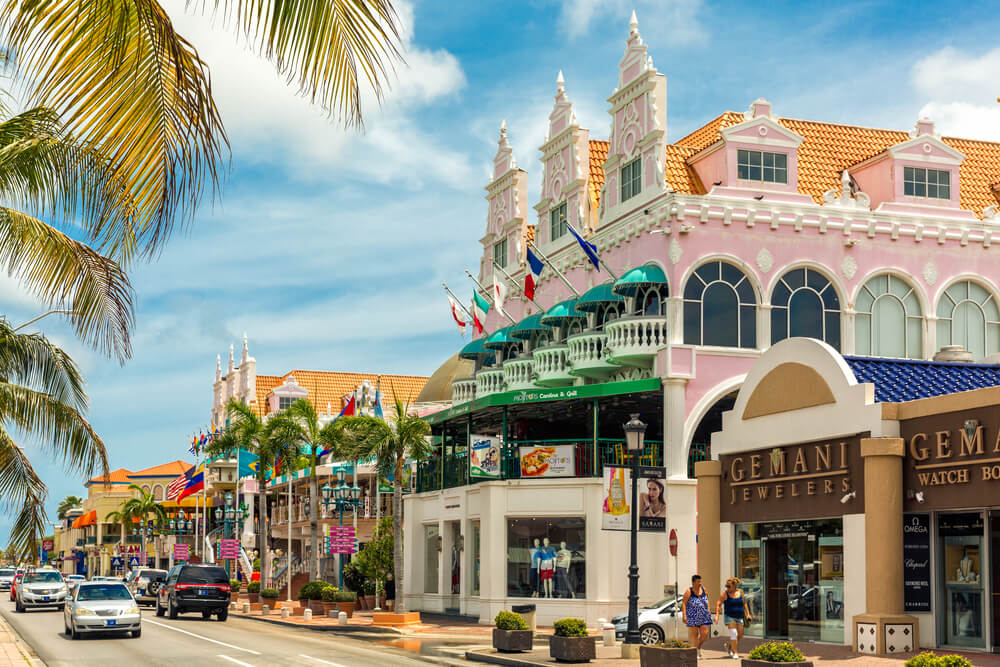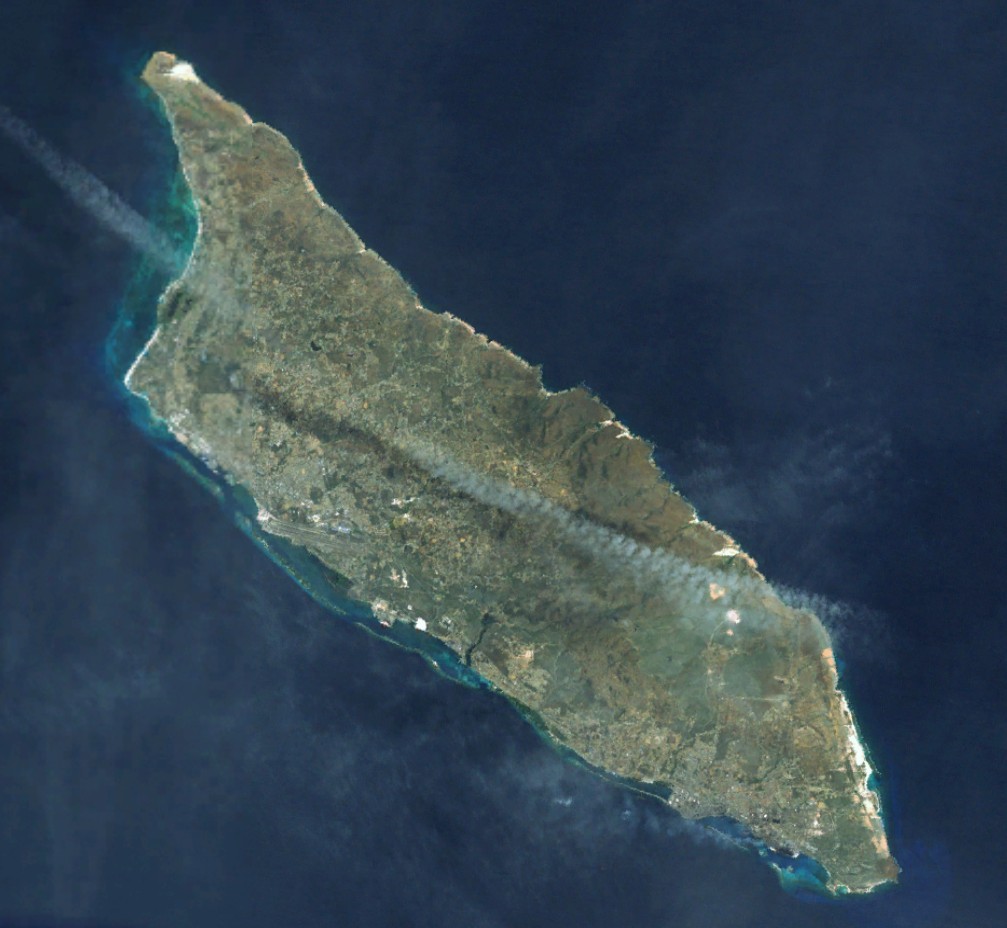Aruba is one of the most beloved Caribbean destinations, known for its breathtaking beaches, warm hospitality, and year-round sunshine. Whether you’re planning your first visit or returning to soak in more of the island’s beauty, this comprehensive guide will help you prepare for an unforgettable experience. From essential travel documents to the best local dishes, we cover all the details to make your trip smooth and enjoyable.



What Do You Need to Enter Aruba?
• Passport: Aruba requires all visitors to have a valid passport. Make sure it remains valid for at least six months after your departure date to avoid any issues at immigration.
• Visa Requirements: Citizens from many countries, including the U.S., Canada, most European Union countries, and a number of others, do not need a visa to enter Aruba for short stays (up to 30 days). However, visitors from other countries may require a visa, so it’s essential to check Aruba’s immigration website or your local embassy to confirm specific visa requirements.
• ED-Card (Embarkation/Disembarkation Card): Before traveling, complete Aruba’s ED-Card online. This quick form streamlines your entry process and can be done a few days before your trip.
What’s the Best Way to Handle Money in Aruba?

• Official Currency: Aruba’s official currency is the Aruban Florin (AWG), but U.S. dollars are widely accepted throughout the island. The exchange rate for the florin is relatively stable, usually around 1 USD = 1.75 AWG.
• Using U.S. Dollars: Many hotels, restaurants, and shops price goods and services in U.S. dollars. While small, local businesses might give change in florins, larger establishments will typically provide change in U.S. dollars if you pay with them.
• Credit Cards and ATMs: Major credit cards such as Visa, MasterCard, and American Express are widely accepted. ATMs are also readily available, dispensing both florins and U.S. dollars. Keep in mind, however, that some banks may charge foreign transaction fees, so it’s a good idea to notify your bank before traveling.
• Tipping: Service charges (usually around 10-15%) are often included in your bill at restaurants. While tipping isn’t mandatory, it’s customary to leave an additional tip for exceptional service, ranging from 10-15%. For taxi rides, rounding up the fare is generally appreciated.
Transport Options on the Island
• Public Transport: Aruba offers a convenient public bus system called Arubus, which connects major parts of the island, including the capital, Oranjestad, and the hotel areas. It’s a reliable and affordable option, costing around $2-3 per ride. The buses run every 15-30 minutes from 6 AM to 6 PM, making it a great option for getting around without renting a car.
• Car Rental: If you’re looking to explore Aruba’s more remote attractions, such as the Arikok National Park or less touristy beaches like Boca Grandi, renting a car is the way to go. Rentals range from compact cars to jeeps for off-road adventures. Remember, driving is on the right side of the road, and Aruba’s speed limits are generally low, making driving easy for tourists.
• Taxis: Taxis in Aruba do not use meters, but they follow a fixed price chart based on your destination. Before starting the ride, confirm the fare with the driver. Popular routes, like from the airport to the hotel areas, will cost around $20-30 USD. Most taxi drivers accept cash or major credit cards, and tipping is common.
When to Go for Ideal Weather
Aruba boasts some of the best weather in the Caribbean, making it an ideal year-round destination. However, certain times of the year offer better experiences depending on your preferences.
• High Season (December to April): This period is the most popular time to visit Aruba due to its perfect weather—sunny days with cooling trade winds. The island also tends to be busier, with higher hotel rates, especially around holidays like Christmas and Easter. However, it’s a fantastic time to escape winter in colder regions and enjoy Aruba’s consistent 82°F (28°C) temperatures.
• Low Season (May to November): Although considered the off-season, Aruba’s weather remains pleasant, with warm days and the possibility of brief showers. Hotel prices are significantly lower, and the island is less crowded, making it a great time for budget-conscious travelers. Aruba’s location outside the hurricane belt means it’s a safer destination during the Caribbean hurricane season (June to November).
Communication in Aruba
Aruba has a multilingual population, and you’ll find that most locals speak at least four languages: Papiamento, Dutch, English, and Spanish. Papiamento, a Creole language influenced by Spanish, Portuguese, Dutch, and several African languages, is the native tongue, but English and Spanish are widely spoken in tourist areas. Even if you don’t speak any of these languages, you’ll find it easy to communicate with locals and service staff.
Explore Aruba’s Aquatic Paradise
• Eagle Beach: Often ranked among the world’s top beaches, Eagle Beach features powdery white sand, clear turquoise waters, and swaying palm trees. It’s a perfect spot for swimming, sunbathing, and relaxing under beach umbrellas.
• Palm Beach: Located in the heart of the resort area, Palm Beach offers calm waters, ideal for snorkeling, paddleboarding, and jet skiing. It’s a livelier beach with beach bars, restaurants, and shops nearby, making it a hub for water sports and beachside activities.
• Baby Beach: If you’re looking for a quieter spot, Baby Beach, located on the southern end of the island, is a shallow lagoon perfect for families with children and beginner snorkelers. The calm waters provide a safe environment for swimming, and the reef near the bay offers fantastic snorkeling opportunities.
• Water Sports: Aruba is a water sports paradise. From kite surfing and parasailing to diving shipwrecks like the Antilla (a famous WWII wreck), there’s something for every level of adventure. Be sure to explore local operators offering rentals, guided tours, and lessons for various activities.
Stay Healthy During Your Stay
• Healthcare Facilities: Aruba’s healthcare system is modern and accessible. In case of emergencies, there are hospitals and clinics equipped with English-speaking staff, and many hotels offer access to on-call doctors. It’s recommended to purchase travel insurance that covers medical emergencies, just to be safe.
• Safety: Aruba is known for its safety, and it’s a low-crime destination. However, like anywhere, it’s important to practice common sense—avoid leaving valuables unattended, lock hotel room doors, and be cautious in less crowded areas at night.
What to Eat in Aruba
Aruba’s cuisine reflects its multicultural heritage, blending Caribbean, Dutch, and Latin flavors. Some dishes you must try:
• Keshi Yena: A traditional Aruban dish of spiced shredded chicken, vegetables, and raisins stuffed inside a shell of melted Gouda or Edam cheese.
• Pastechi: A popular snack, pastechi are flaky, deep-fried pastries stuffed with savory fillings like cheese, beef, chicken, or seafood.
• Seafood: As an island, Aruba has access to incredibly fresh seafood. Try dishes like grilled mahi-mahi, red snapper, or wahoo served with local sides like fried plantains or rice and beans.
How to Stay Powered
Aruba uses 110 volts at 60Hz, the same as the United States. If you’re traveling from Europe or other regions, you’ll need a plug adapter for two-prong outlets. Many hotels provide adapters, but it’s a good idea to bring your own just in case.
10. What to Pack: Essentials for an Island Getaway
• Sunscreen: Aruba’s sun is strong year-round, so pack plenty of sunscreen. Opt for a reef-safe formula to protect both your skin and the island’s precious marine life.
• Light Clothing: Breathable, lightweight fabrics are a must for Aruba’s tropical climate. Pack casual beachwear for the day, but consider a light jacket or shawl for cooler evenings.
• Swimwear and Beach Gear: Multiple swimsuits, flip-flops, a sun hat, and sunglasses are beach day essentials. Bring a waterproof bag for your electronics and valuables while on the beach.
11. Cultural Etiquette: Dos and Don’ts in Aruba
Arubans are known for their warm, welcoming nature. Visitors are encouraged to reciprocate this friendliness with politeness and respect for local customs.
• Dress Code: While beachwear is perfectly acceptable on the beach, it’s important to wear more appropriate clothing in public places like restaurants or shops. Avoid walking around town in just swimwear or going barefoot.
• Respect for the Environment: Aruba has a strong focus on sustainability, and you’re encouraged to minimize your environmental footprint. Avoid littering, use reef-safe sunscreen, and respect wildlife while snorkeling or diving.
Pack your bags, embrace the island’s warm hospitality, and get ready for an unforgettable vacation in paradise! Safe travels!
